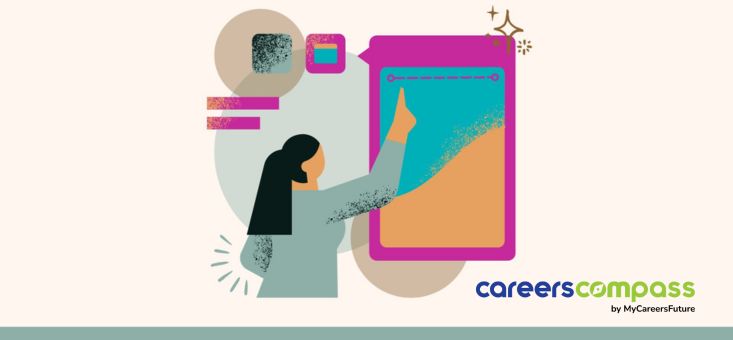Watch The Video Here!
The global job market has undergone significant transformations since the onset of the pandemic. Job skills and requirements are undergoing dramatically, calling for workers across the globe to adapt to these shifts.
The latest Future of Job report by the World Economic Forum, which was published in May 2023, laid out what skills are crucial right now and which ones will become vital in years to come. This report surveyed 803 companies across 27 industry clusters and 45 economies from around the world. It found that creative thinking continues to be the second most important skill for workers in 2023, just behind analytical thinking as the top skill.
This underscores the increasing importance many employers are placing on creative thinking capabilities of both their current workforce and potential future recruits.
On our shores, employers also see creative thinking as paramount in today’s job market. A study published by the Institute for Adult Learning Singapore, which surveyed 2,000 participants from the Singaporean workforce, found that creative thinking is one of the top three most demanded skills.
But what exactly is creative thinking and what does it entail? Simply put, creative thinking is a person’s ability to think beyond the usual, putting together ideas and information to connect them to form solutions or develop new ways of thinking. It is highly important in the professional realm for various reasons, including problem-solving, having a competitive advantage, adaptability and increased productivity, to name a few.
So how can you develop your creativity and ability to innovate? Here are 10 hacks you can do!
1. Widen your knowledge
It’s important to keep up to date on industry trends, emerging technologies and best practices. But more than that, it’s beneficial to read books, articles and any other material outside of your industry or genre preferences to push yourself to think in new ways. This can also help you to develop a growth mindset.
2. Ask questions
First step to encouraging creativity is to always ask questions. Challenge assumptions and existing norms by asking the whys, hows and the what-ifs so that you can explore new possibilities. Asking questions helps you connect thoughts and ideas so come up with three questions that you can use to help you think differently – you’ll be surprised how powerful these questions are in surfacing new ideas.
3. Allow free play
Basically, this means not letting yourself be restricted in your thoughts and ideas. The sky is the limit, so let the brain juices flow. Set aside time regularly to brainstorm and encourage free thinking. Don’t allow your own criticisms to get in the way. Try doodling or writing anything you want on paper to train your imagination.
4. Exercise your mind
A 2018 study in the Journal of Cross-Cultural Psychology found that diversifying our experiences can improve creativity. Creative minds are always seeking the new, so it is important to grow your experiences – whether it’s to pick up a new craft, play an instrument or to learn a new language.
5. Bounce ideas off others
Collaborating with colleagues from other teams or departments allows you to gather insights you may not have thought of. Their sharing can then inspire innovation. After all, many great brands today were brainchildren of teams who came together to conceive ideas. This also trains you to be a valuable team player.
6. Seek new perspectives
Actively seek out fresh viewpoints by exposing yourself to a variety of cultures, disciplines, industries and interests. Whether it’s through self-research, attending industry events or even travelling, you can broaden your horizons and improve your ability to think creatively. In these instances, ask questions, get feedback and consider opportunities for collaboration.
7. Have me-time
Having personal time for your own solitude can provide the mental space you need for creative ideas to arise. Meditation stimulates the brain by reducing stress and anxiety while making way for creative thinking and problem-solving. This also contributes to better emotional well-being.
8. Go outside
Sometimes, all you need is a break from your daily routine or from the work you’re doing. A Frontiers in Human Neuroscience study found that moving your body has proven to stimulate your mind. Taking a short break just to get outside and walk around the perimeter of the office can inspire creative thinking.
9. Keep learning
Continuous learning can teach you how to be more creative, especially if you’re not sure how to start. Sign up for courses to help close your skills gap and expose yourself to new information and experiences.
10. Find a buddy
A more experienced colleague or mentor can help guide your creative thinking process. If you simply need someone to bounce ideas off, work with a colleague you’re comfortable with to brainstorm or pitch ideas and encourage each other to think outside the box.
In most situations, skills improvement comes with practice, and creative thinking is no exception. Being able to think creatively can make you a valuable asset in the workplace. It equips you to tackle challenges, craft innovative solutions and enhance work processes, ultimately boosting productivity.















